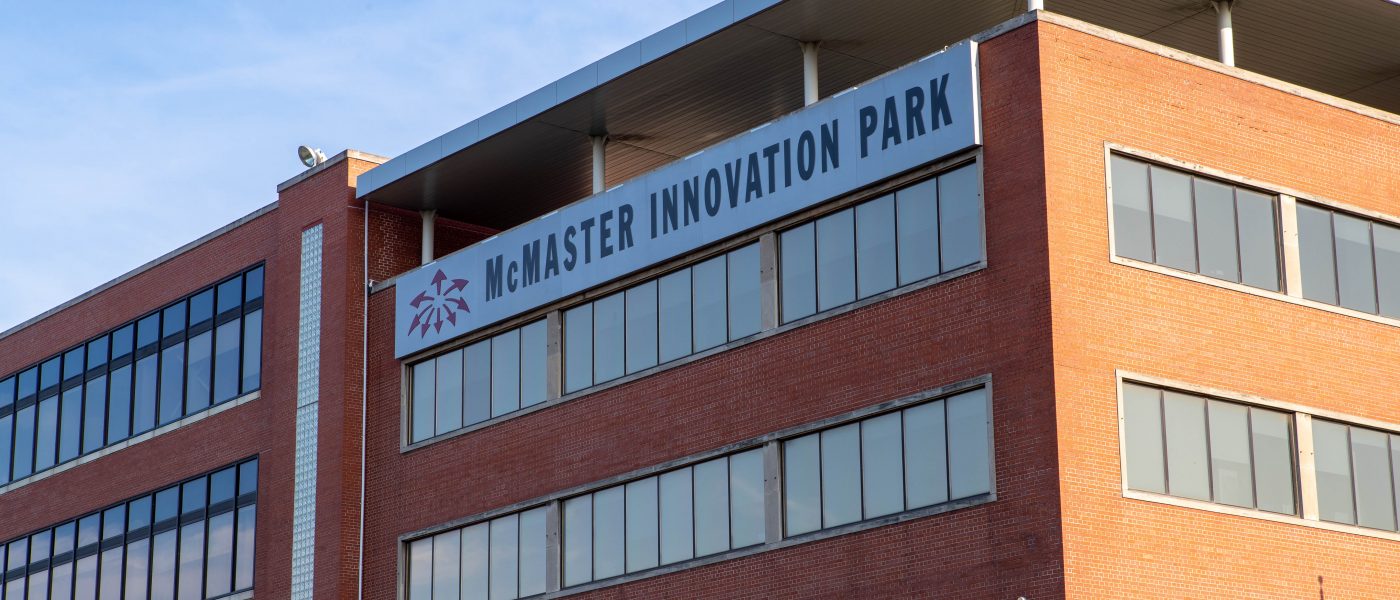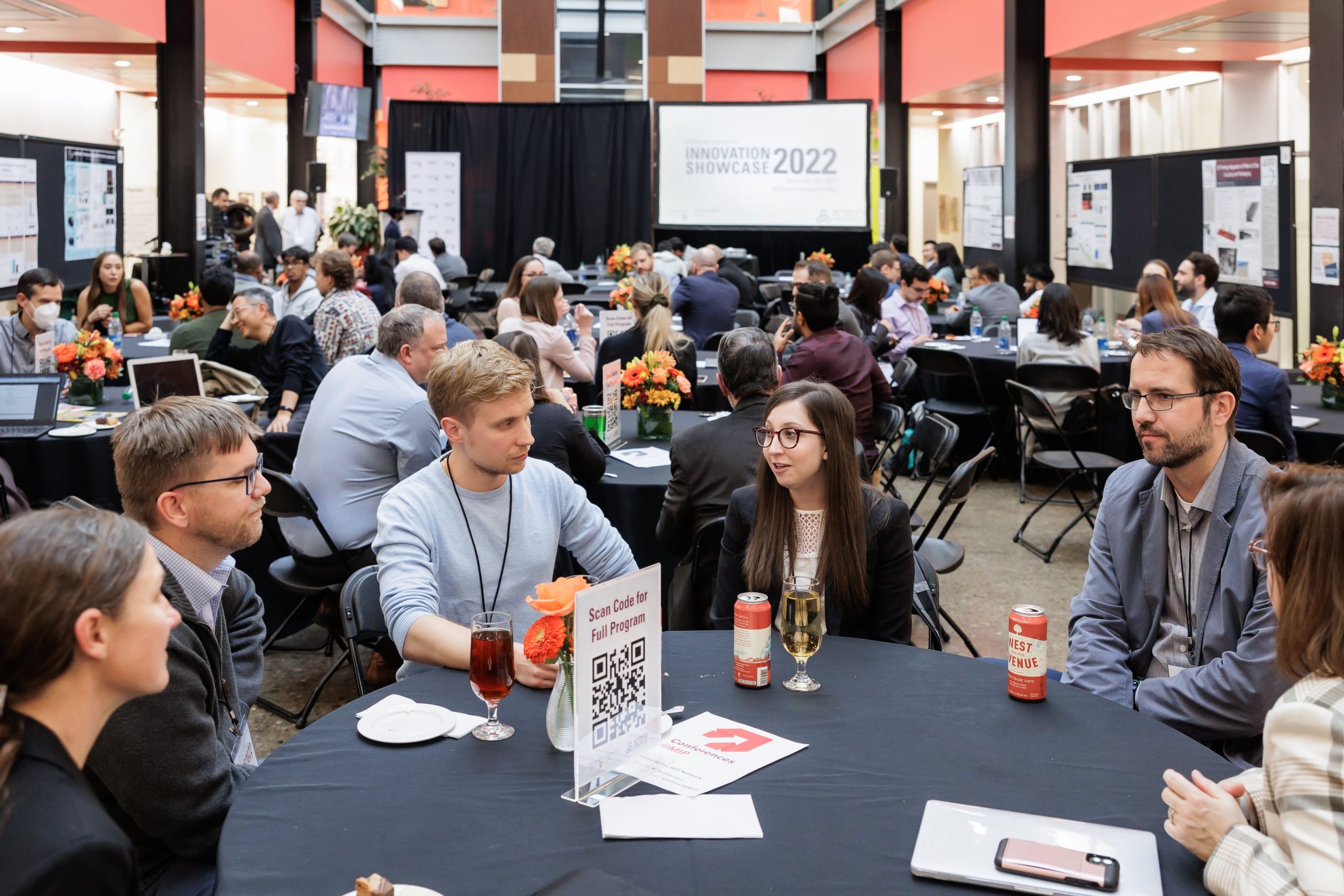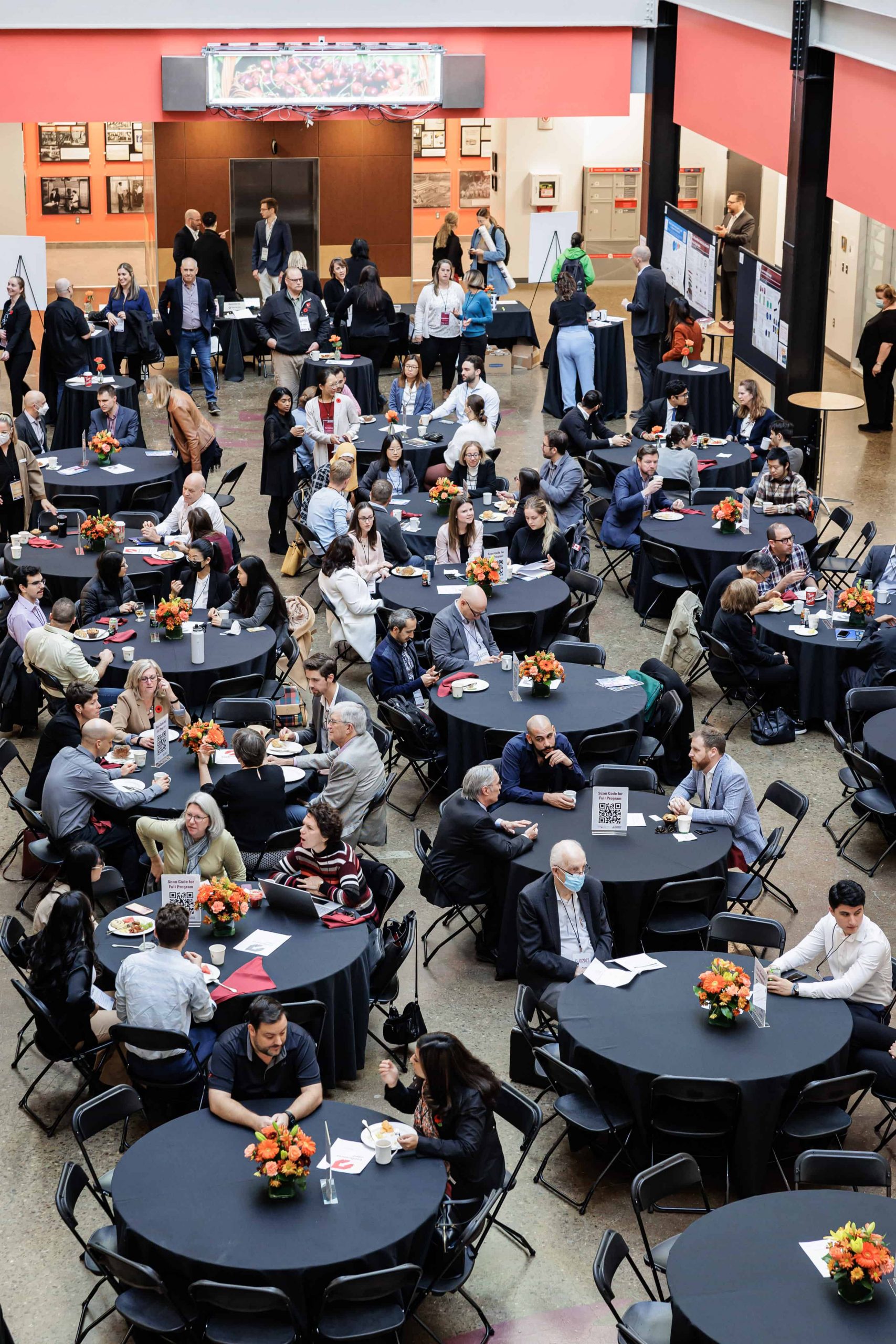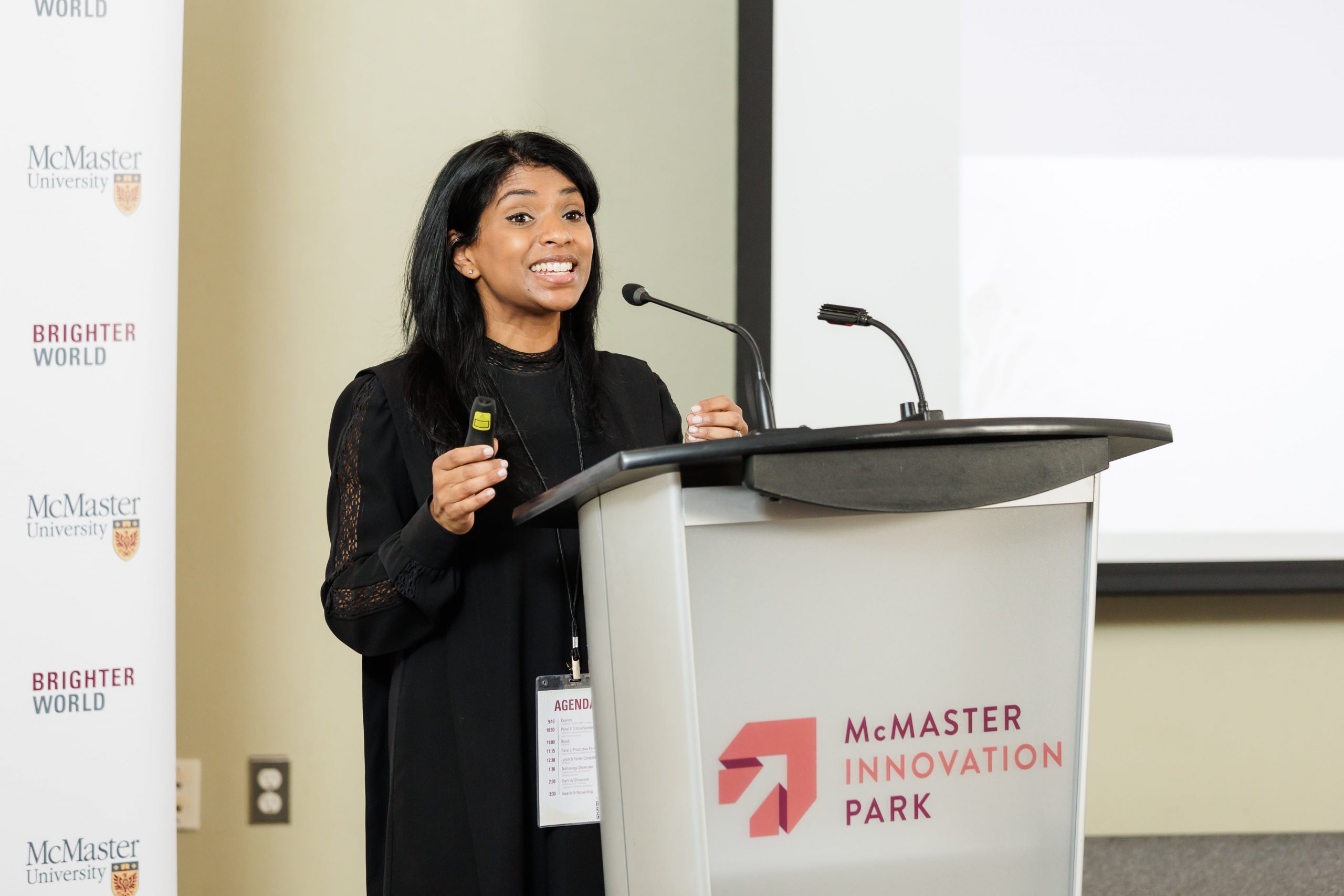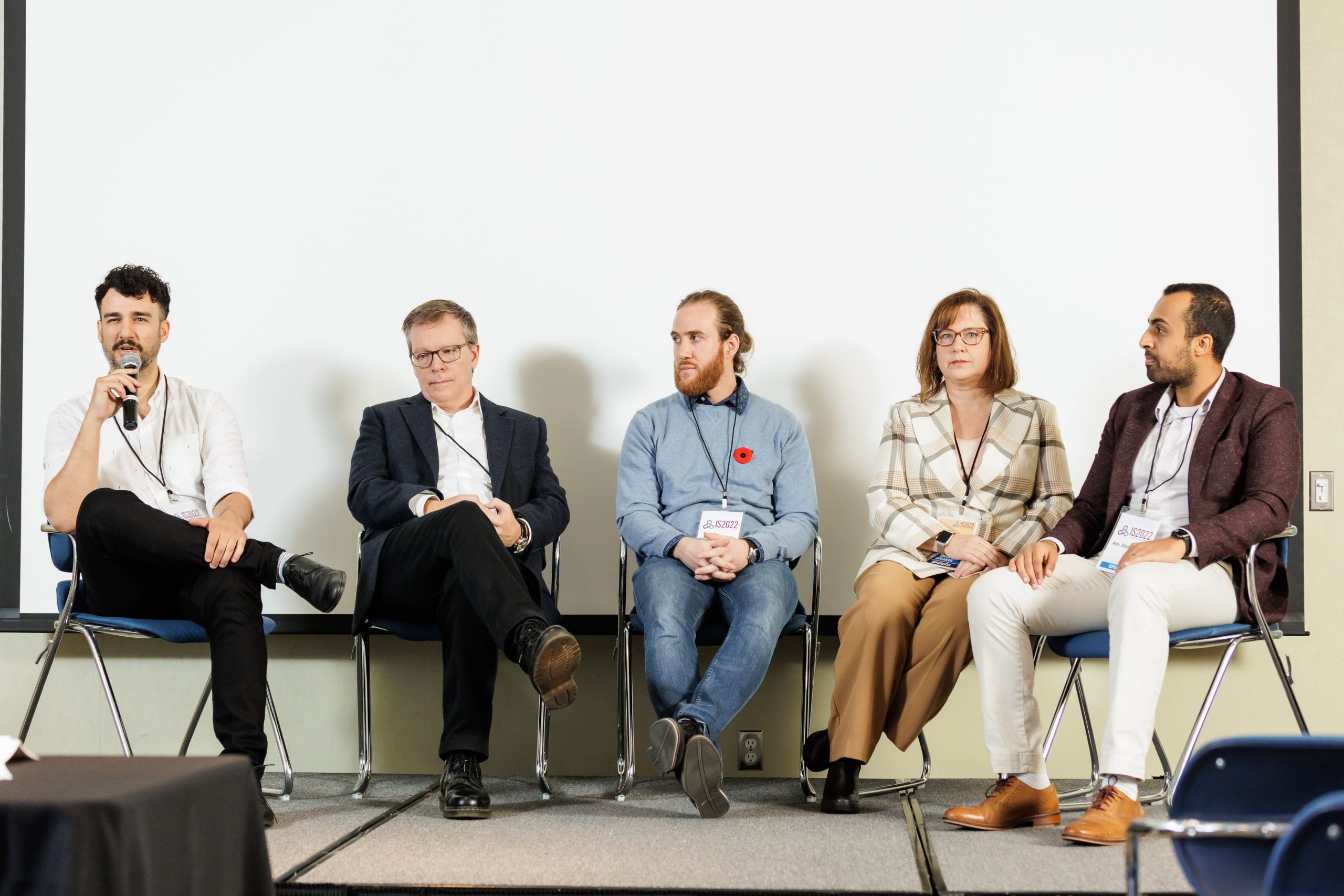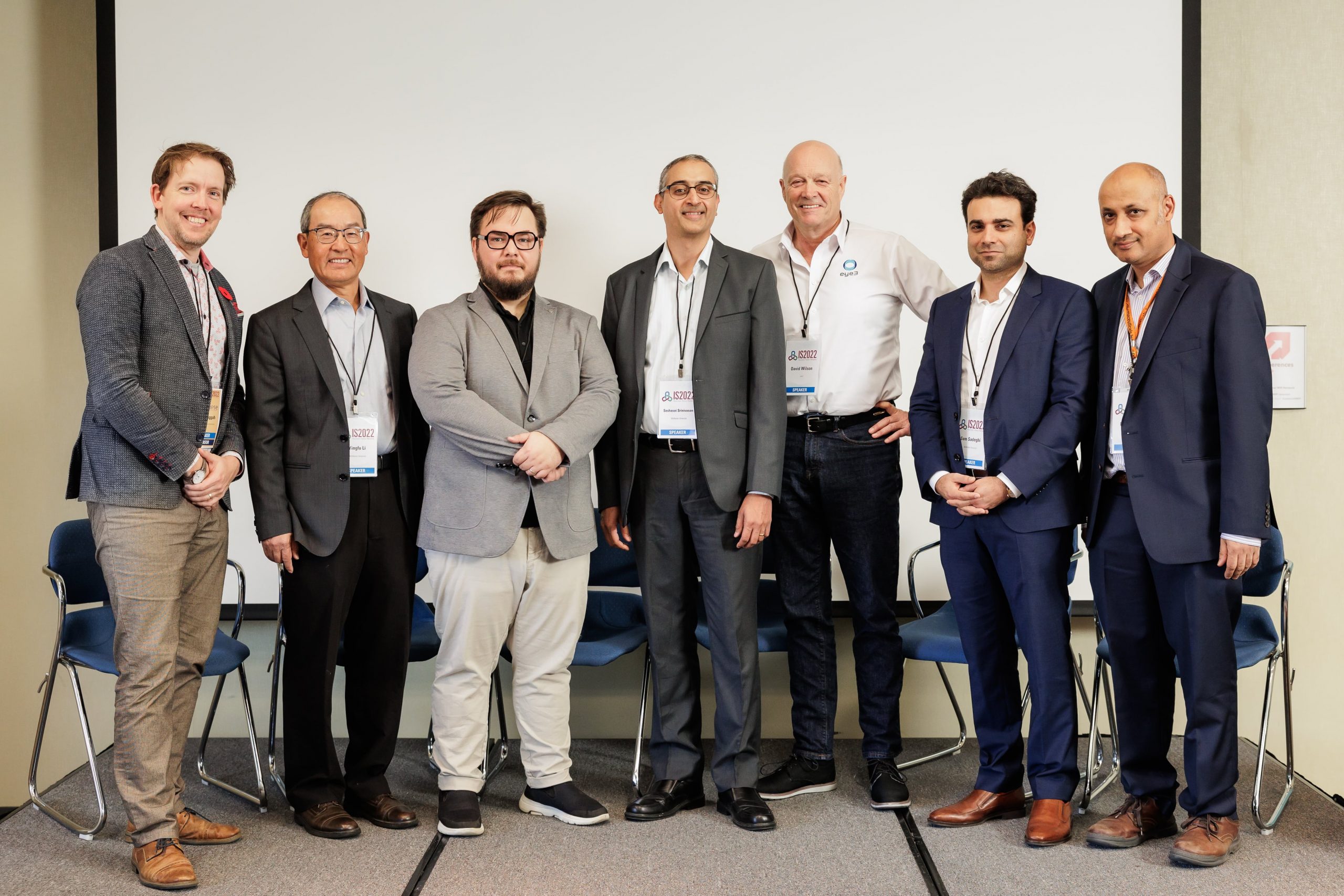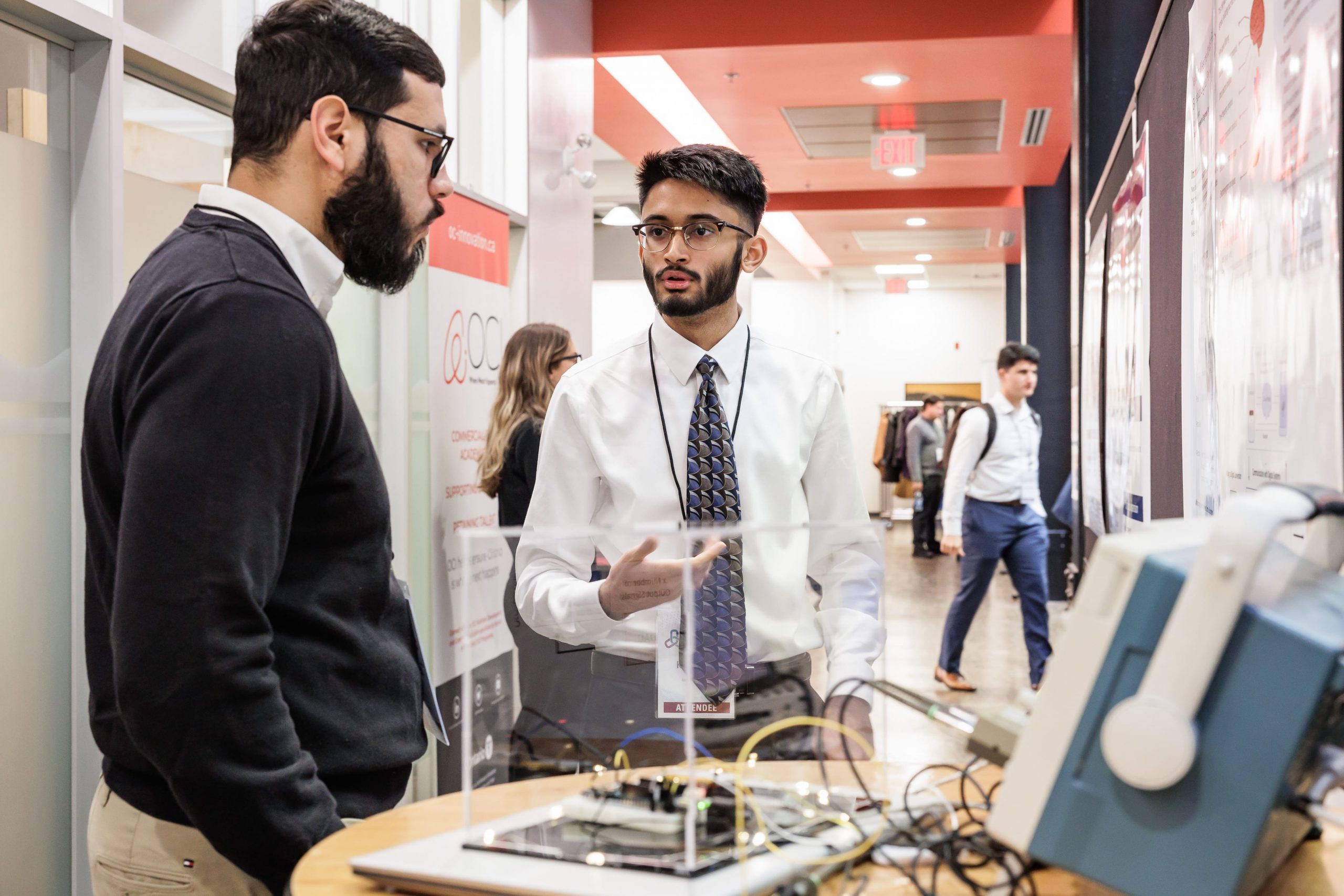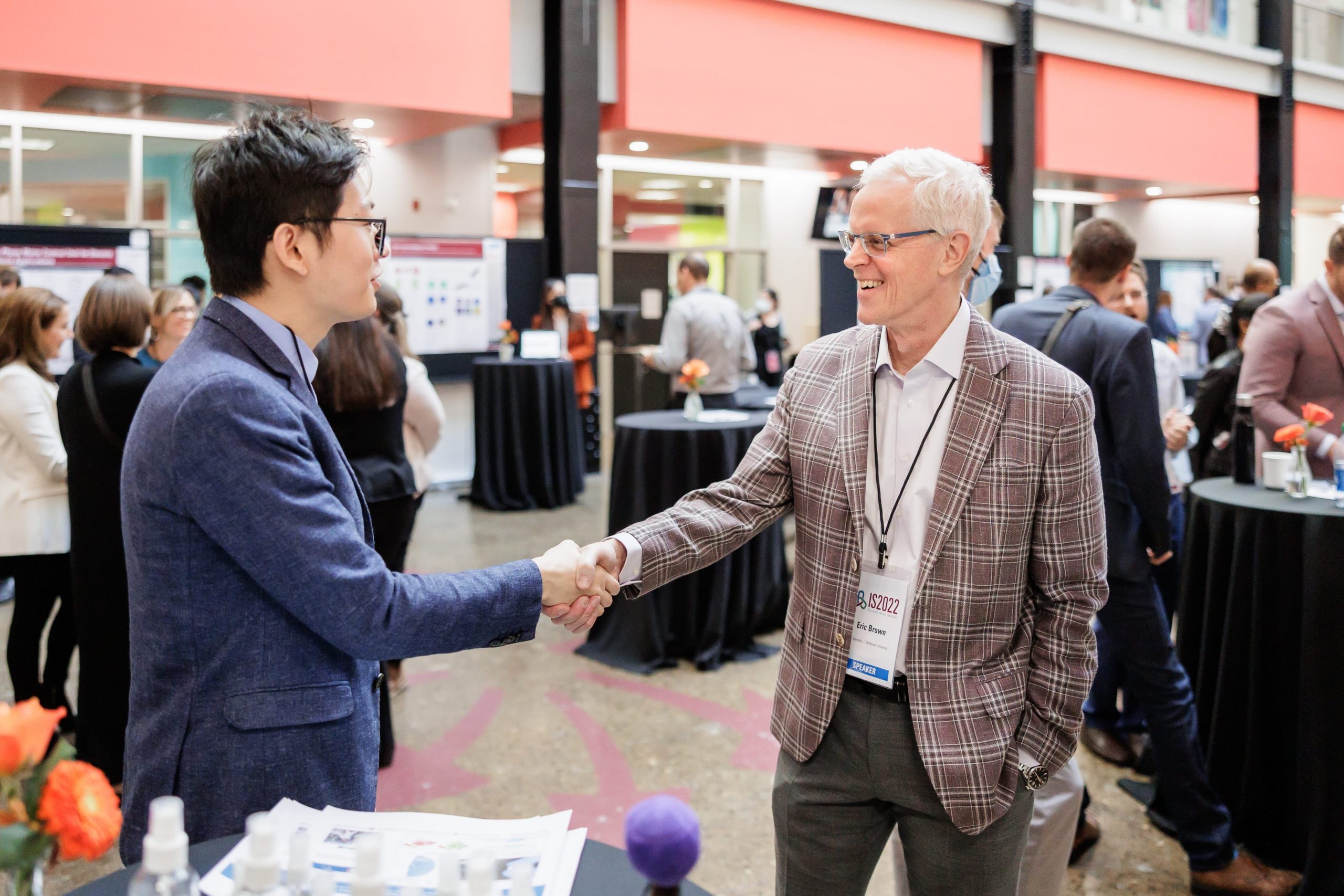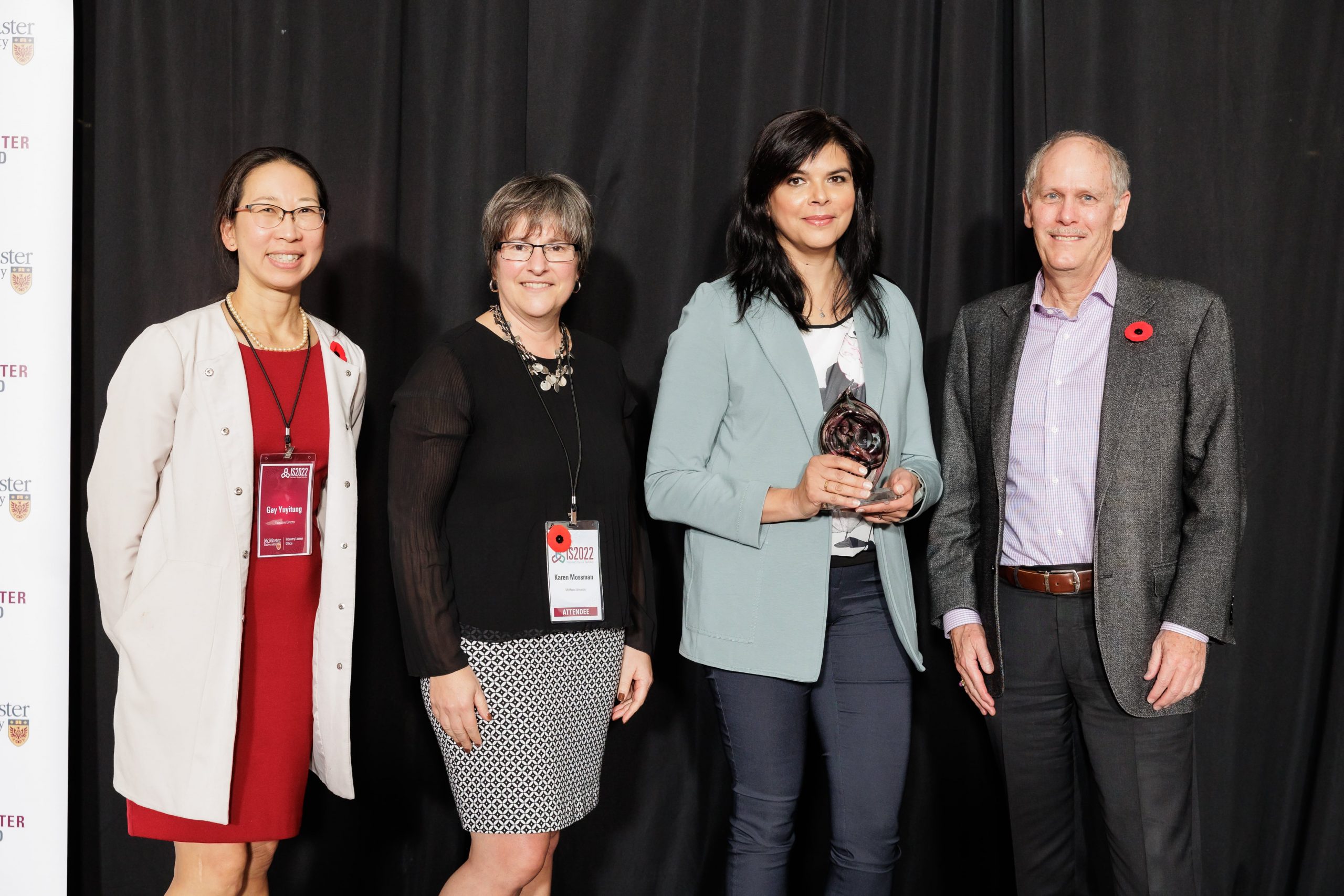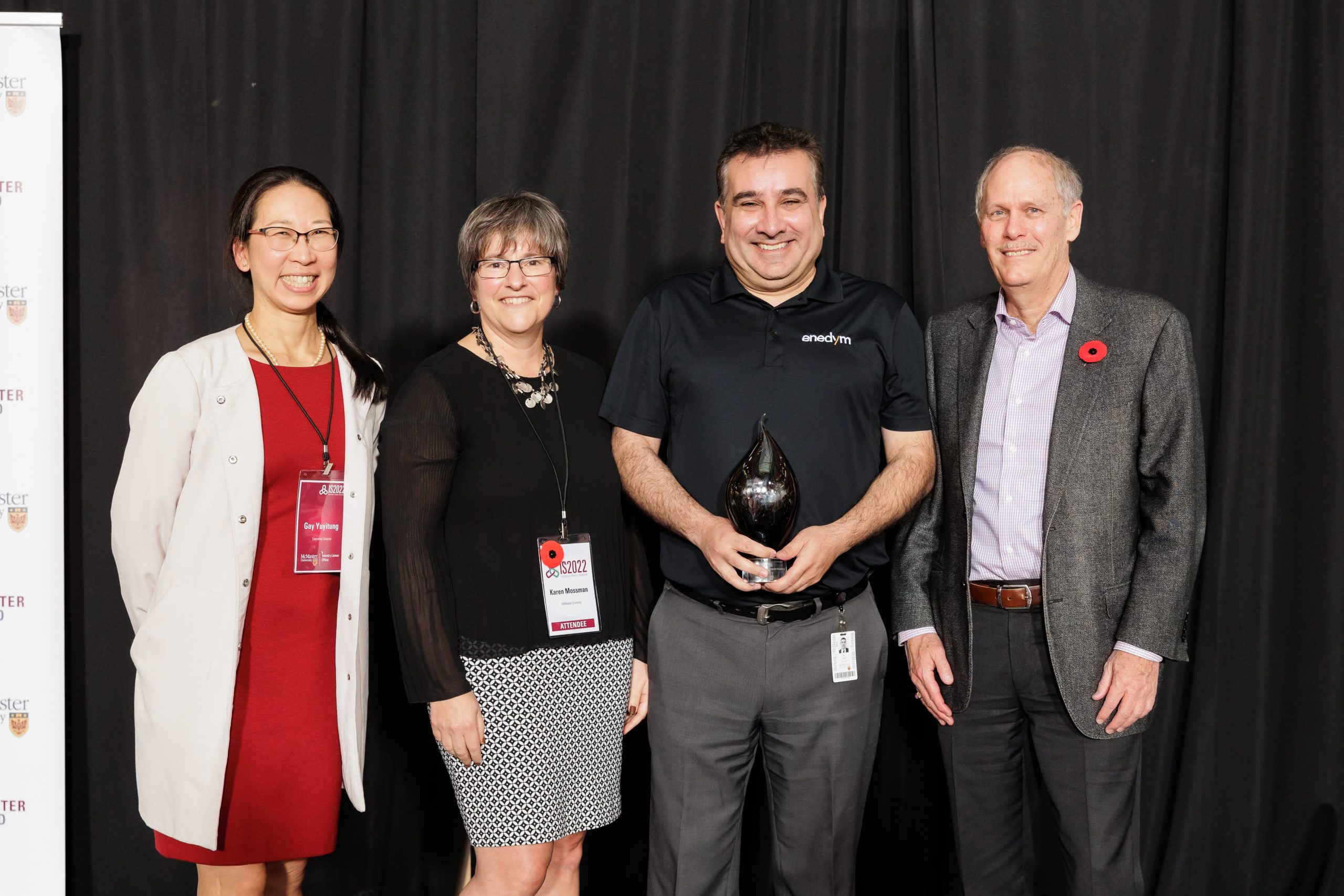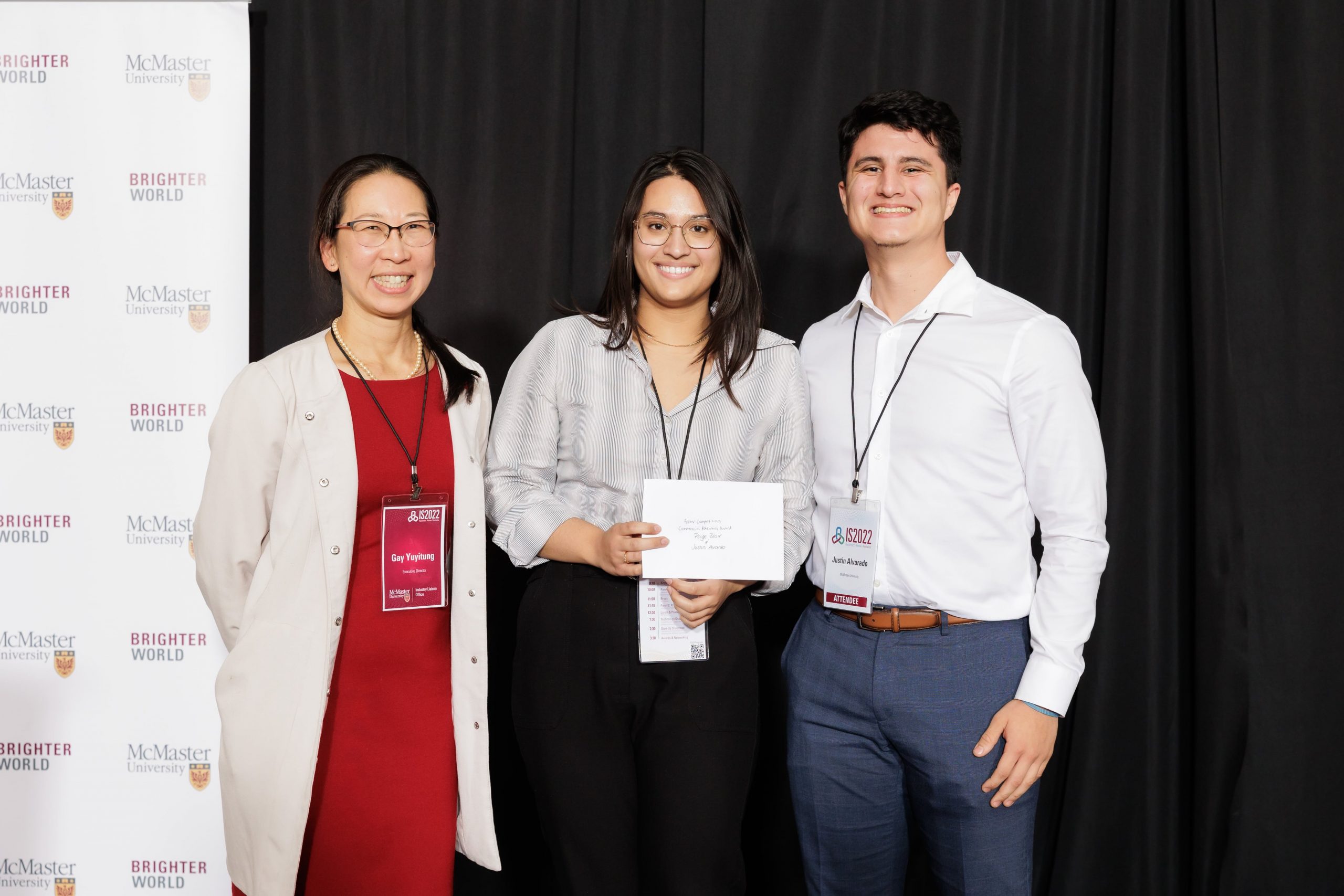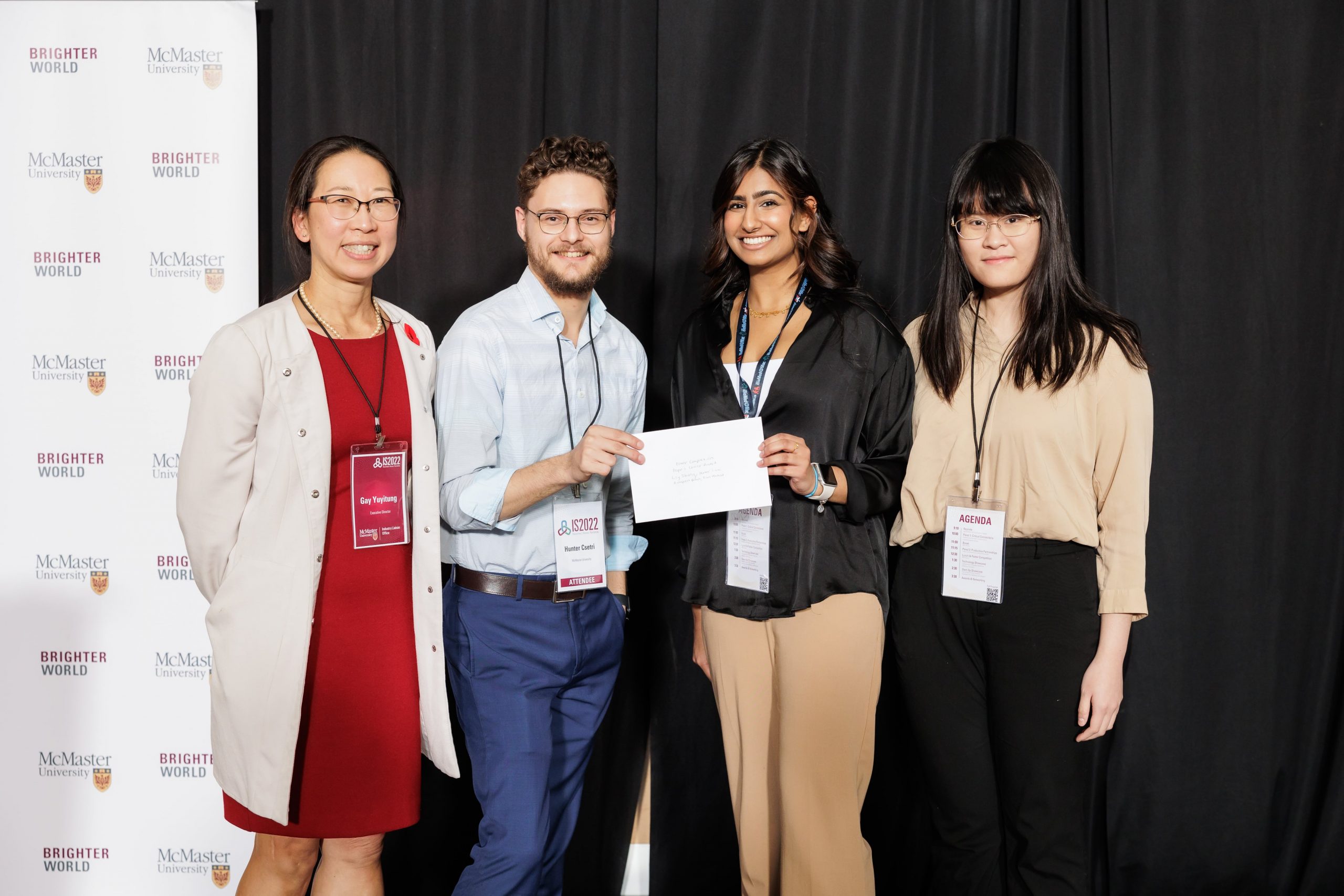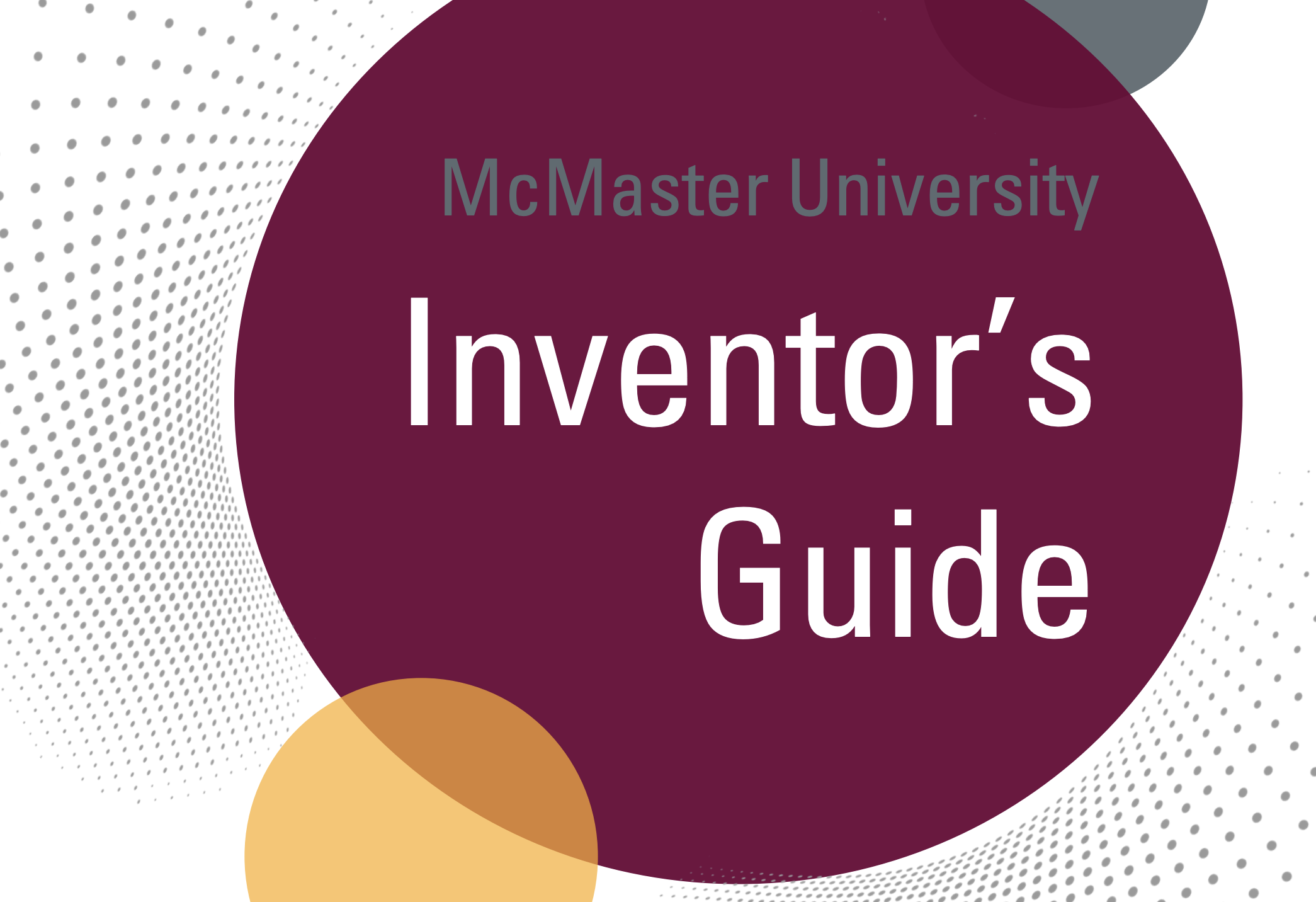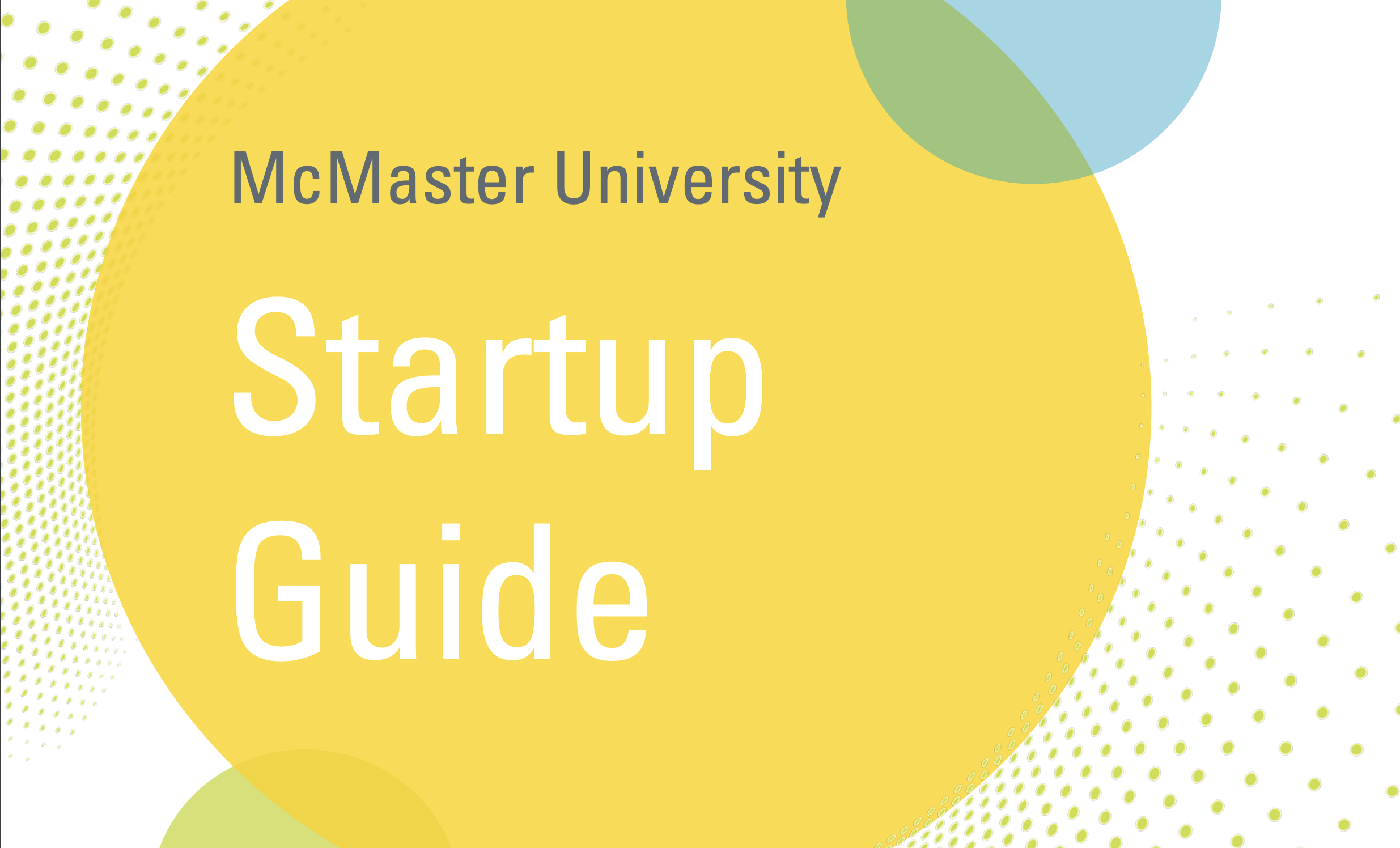
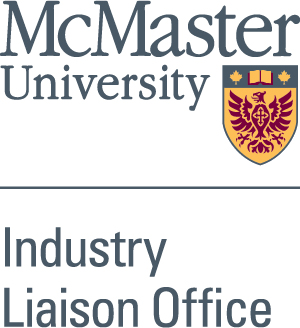
Home to some of the best minds and research facilities in the country, McMaster University has earned its international reputation as a leader in research, innovation and impact. This is thanks to McMaster’s dedicated faculty, staff and students who conduct ground-breaking research, develop innovative technologies and programs, and make significant contributions to our local and global communities.
As one of Canada’s most research-intensive universities, the impact of our research extends far beyond our campus, as the McMaster community works together to convert innovative ideas into solutions that benefit society and drive economic growth. The McMaster Industry Liaison Office (MILO) is dedicated to supporting these efforts, fostering collaborations, and ensuring our experts’ research is placed in the hands of those who can put it to its best use.
We’re pleased to share some of our key initiatives and our researchers’ success stories over the past year.
Celebrating Innovation
McMaster Innovation Showcase

The 12th Innovation Showcase, held at McMaster Innovation Park on November 10, 2022, brought together the region’s research and innovation communities to reconnect in person. The Showcase featured a variety of cutting-edge research projects, commercialization successes, and emerging technologies from McMaster faculty and students. It provided a platform for investors, entrepreneurs, and industry representatives to share their expertise on best practices for moving technologies to market. It was also an opportunity to celebrate our patent awardees, as well as nominees and winners of the Innovator awards, presented by McMaster’s Vice-President, Research.
- McMaster Innovator of the Year: Gina Agarwal
- McMaster Lifetime Innovator: Ali Emadi
Supporting McMaster Startups – McMaster Seed Fund
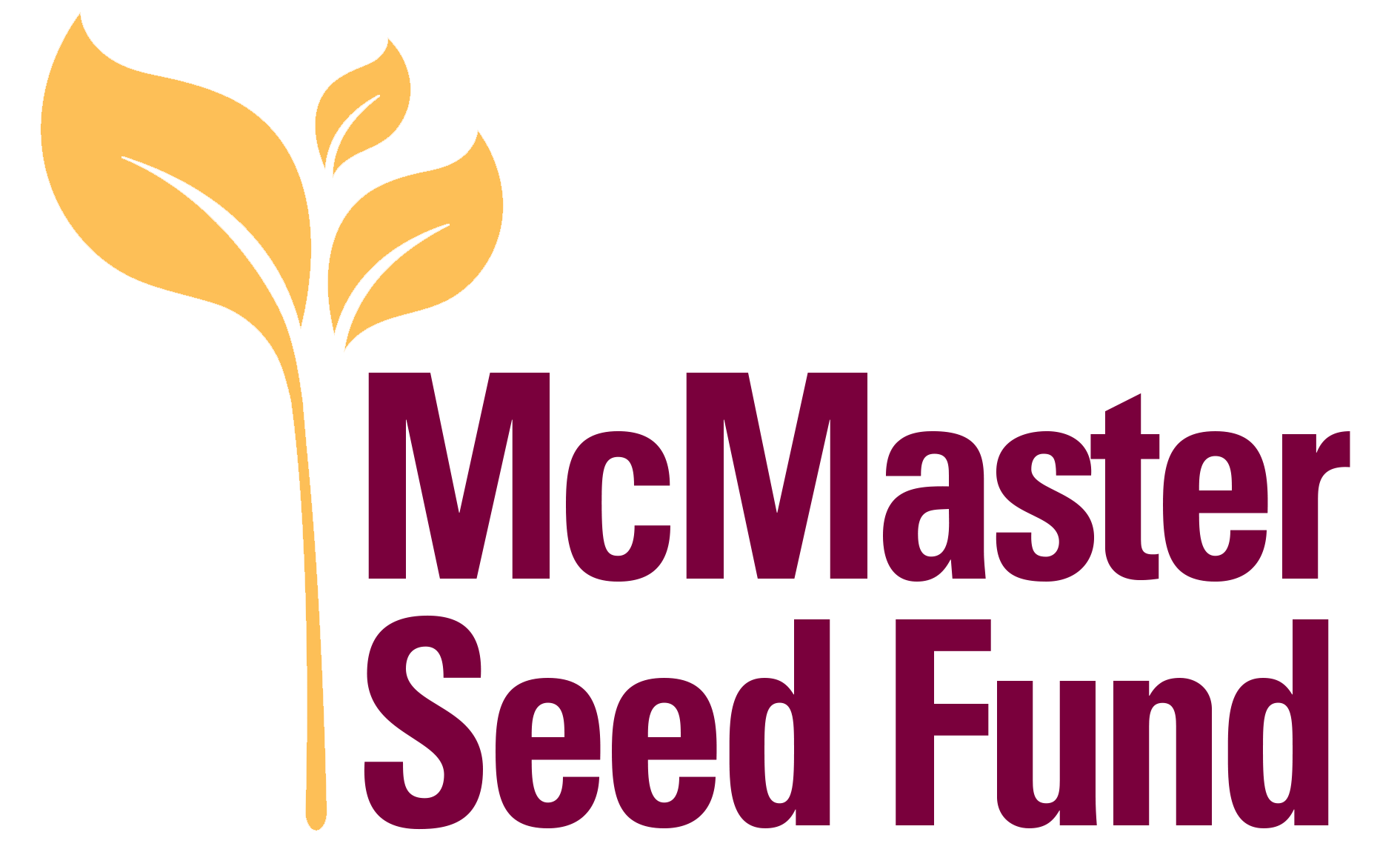
The McMaster Seed Fund (MSF) was established in September 2021 to address the funding gap faced by innovators in the early stages of commercializing their ideas. MSF supports startups with the potential to make a significant economic and/or societal impact in the Hamilton region and beyond. Applications to MSF are managed by MILO and vetted by an Investment Committee comprised of successful entrepreneurs, early-stage investors and top executives, all external to the University. MILO supports applicants by facilitating pitch practices, conducting due diligence assessments, and making connections to advisors or potential partners.
In 2022, MILO announced the second round of financing — $1.27 million combined – for three promising companies that are developing products to advance women’s pelvic health, enhance drug delivery for chronic eye conditions, and improve quality of care in emergency rooms.
Information Box Group
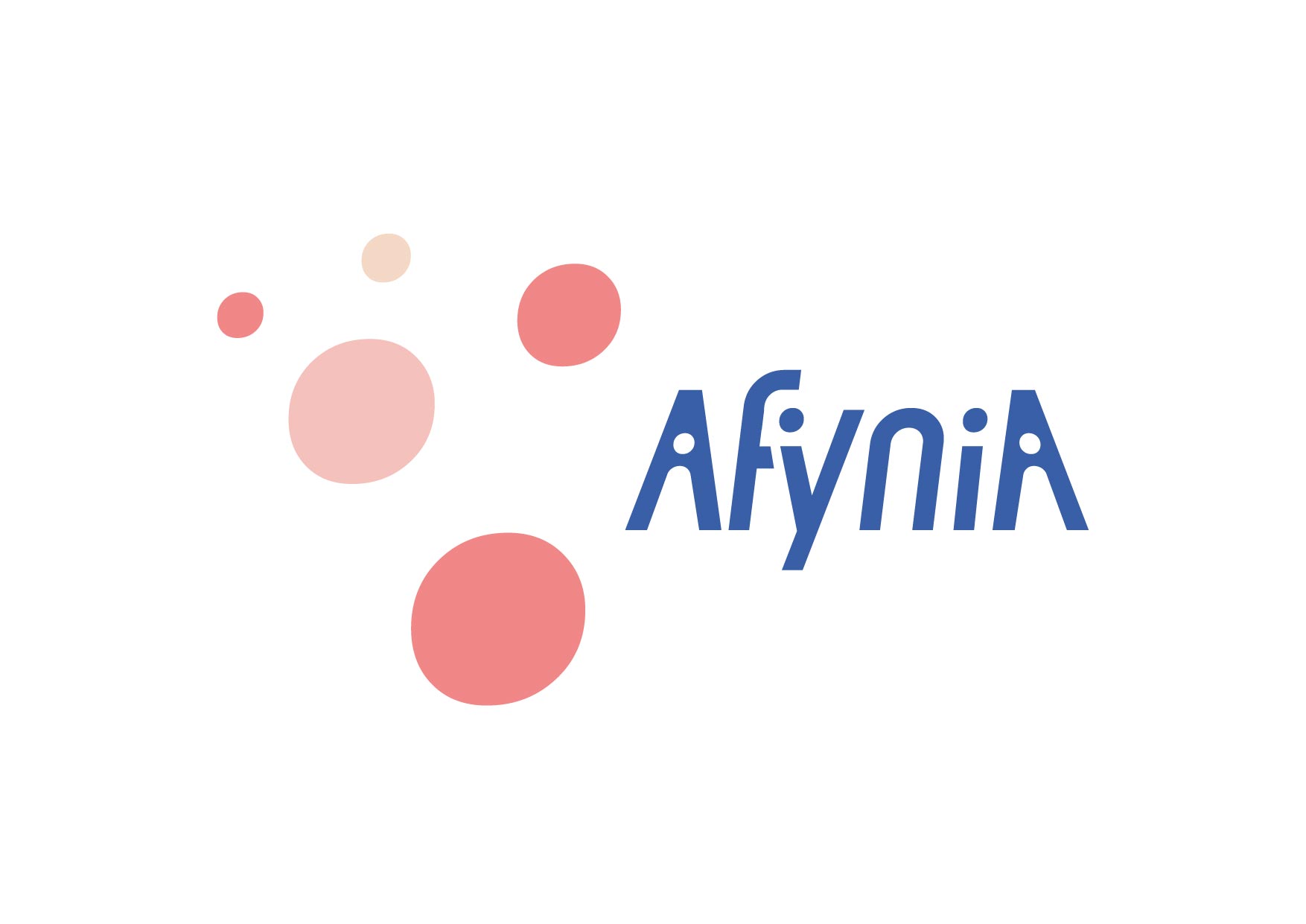
Afynia Laboratories Visit Afynia
Afynia Laboratories, a biotech company co-founded by McMaster researcher Jocelyn Wessels and Professor Emeritus Lauren Foster, received $468,500 in funding to advance a non-invasive, at-home diagnostic test capable of detecting endometriosis with an accuracy similar to surgery. The company’s cutting-edge technology aims to improve the detection and diagnosis of this condition.
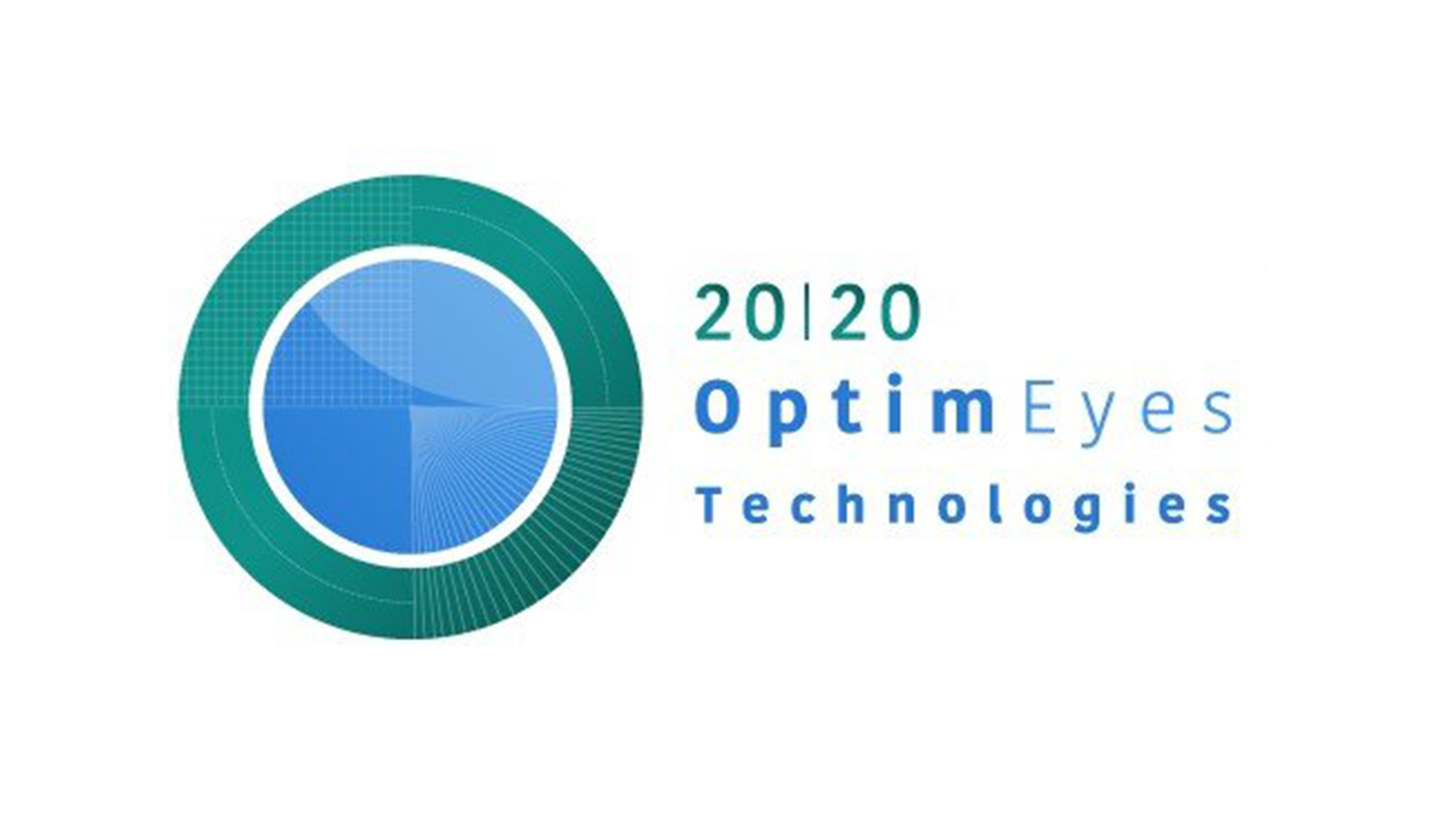
20/20 OptimEyes Technologies Visit OptimEyes
20/20 OptimEyes Technologies, a spin-off from McMaster University’s Sheardown Lab, is applying patented technology using mucoadhesive micelle nanoparticles to deliver drugs to the eye. The company, co-founded by Frances Lasowski and Heather Sheardown, received $428,000 in funding to develop pre-clinical data packages to bring this technology to market and enhance treatment options for patients with glaucoma and dry eye diseases.
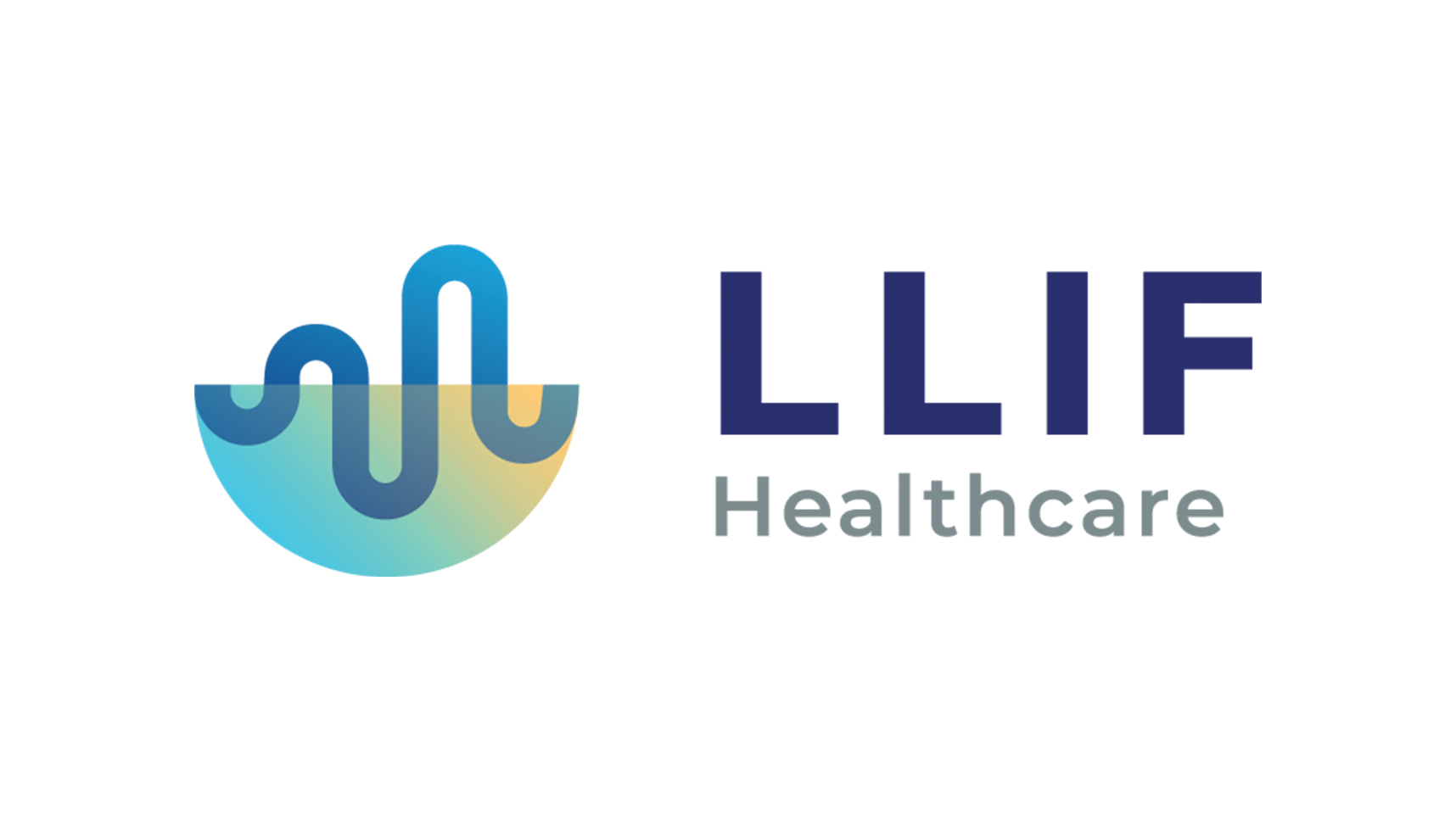
LLIF Healthcare Visit LLIF
LLIF Healthcare, co-founded by Associate Professor of Medicine Shawn Mondoux and clinician David Hamilton, received $381,500 to advance its cloud-based platform. LLIF has pilot studies in local hospitals to trial their MD Dashboard, which extracts and analyzes physician practice data to improve the delivery of care to patient, enables better planning of clinical workflows, and provides clinicians with feedback for professional development.
Supporting Commercialization
MILO continues to assist researchers in commercializing their projects by providing support for prototype grant and funding applications.
This past year, we secured over $785K in proof-of-principle funding.
Partnerships & Collaboration
McMaster University is known for its collaborations with industry, non-profit organizations, and government agencies. These partnerships and research collaborations aid organizations worldwide in tackling complex issues, enhancing their products and processes, and creating new policies and guidelines.
MILO helps researchers to secure funding from industry by identifying and evaluating applications for matching grant programs, such as the Natural Sciences and Engineering Research Council’s (NSERC) partnerships programs, Ontario Centre of Innovation’s (OCI) collaborative programs, and Mitacs funding programs. Additionally, MILO assists researchers in applying for commercialization funding programs, such as NSERC’s Idea-to-Innovation, Canadian Institutes of Health Research (CIHR) Commercialization grants, and OCI’s Market Readiness Co-Investment Fund.

$42M+
Research Funding Administered
300+
Partnerships Supported
750+
Agreements Negotiated
Success Stories
Information Box Group

McMaster and Sapujiyiit Society explore impacts of climate change on Inuit communities Learn more about the Sapujiyiit Society
McMaster researchers have partnered with the Foxe Basin Kivalliq North Sapujiyiit Society – a collaboration between the communities of Chesterfield Inlet, Coral Harbour, and Naujaat, Nunavut focused on protecting the regions’ waters, marine mammals and Inuit – to explore the impacts of climate change on the day-to-day lives of Inuit women.
Local community leaders have raised concerns about the potential impacts that climate change and increased shipping traffic will have on marine mammals and Inuit hunting and harvesting practices. While previous research has focused on the act of harvesting, a male-dominated activity, this project focuses on how these factors impact female-dominated activities, which include cooking the harvested meat and preparing hides for clothing.
Under the guidance of Brent McKnight (Associate Professor, DeGroote School of Business) and Sarah Newell (Executive Director and Lead Researcher of the Sapujiyiit Society), McMaster student Faith Maelzer is conducting focus groups and interviews with Inuit women to gather their perspectives on the impact of climate change on the quality of mammal meat and hide, as well as their outputs, such as food and clothing. This understanding will be incorporated and used to inform guardian programs in the terroritories.
The research will support the development of the Sapujiyiit Society’s community-based monitoring plan to advance health and well-being, cultural continuity, and food security in the region.

Revolutionizing period products with the Bfree Cup Learn more about the Bfree Cup
Hamilton-based Women’s Global Health Innovations (WGHI) is revolutionizing period products with their sustainable, antibacterial and easy-to-use menstrual cup – the Bfree Cup. Menstrual cups are more environmentally friendly than single-use period products, reducing landfill waste and providing the added feature of being essentially odourless.
By leveraging insights in materials science and engineering, Bfree Cup is taking menstrual cup technology to the next level. Made of 100% medical grade silicone with a repellent surface that prevents bacterial buildup, the Bfree Cup does not require sterilization in between cycles, allowing for longer wear and less frequent cleaning compared to traditional menstrual cups.
In partnership with WGHI, McMaster engineers Tohid Didar and Zeinab Hosseinidoust are developing a biodegradable non-toxic dried gel to absorb menstrual fluid inside the Bfree Cup. They are also developing a secondary gel that will be capable of reporting health conditions that develop from a bacterial imbalance in the vagina, providing users with an innovative tool that can be used to monitor their health. Both gel inserts will be completely biodegradable and can be disposed of through typical municipal waste systems.
As part of WGHI’s mission, the company is working with communities worldwide to combat period poverty – empowering girls with sexual reproductive health education and increasing access to sustainable menstrual hygiene products through the Bfree Cup. Didar and Hosseinidoust’s research will enable further development of the product as a sustainable, accessible alternative to pads and tampons.

First responders’ peer support application Learn more about PeerOnCall
McMaster researchers have developed two mobile apps, PeerOnCall and PeerOnCall Support, to provide Canada’s first responders with peer-to-peer mental health support and customized resources. The apps aim to enhance access to private and personalized mental health resources, promoting early intervention and psychological well-being in public safety workplaces. Led by Associate Professor in the School of Rehabilitation Science, Sandra Moll, the apps were co-designed with public safety personnel such as correctional officers, firefighters, and paramedics.
PeerOnCall connects public safety personnel seeking peer support with trained providers via secure, private text or voice chat. Users can also access various resources and wellness tools. PeerOnCall Support assists trained peer support providers by matching them with support seekers based on seekers’ preferences.
MILO played a crucial role in getting the app ready to go to users by ensuring intellectual property protection and user privacy terms were in place. The apps were launched within 20 public safety organizations across Canada, with the first implementation in an Ontario police organization.
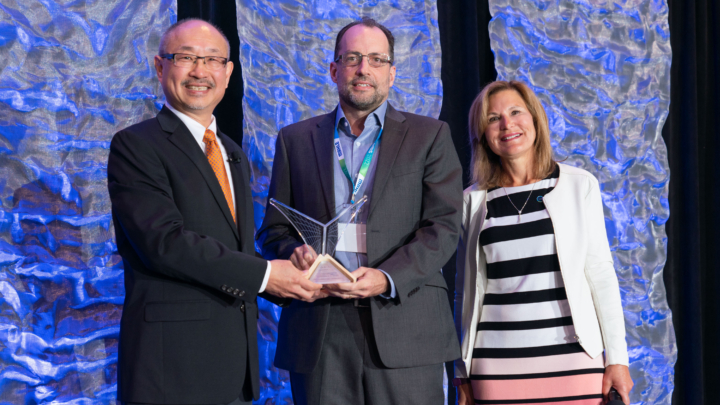
Nemalloy’s lightweight alloy breakthrough Learn more about Nemalloy
MILO is proud to showcase the development of an automotive alloy, Nemalloy, through a seamless three-way collaboration among McMaster researchers, industry partner Nemak, and the federal government’s CanmetMaterials Technology Laboratory. Mechanical engineering professor Sumanth Shankar and research scientist Xiaochun Zeng led the invention of this high-strength material that is at least 35% lighter than traditional aluminum alloys. The alloy’s impact on the automotive industry was acknowledged by the prestigious Altair Enlighten Award 2022 in the Future of Lightweighting category.
Nemalloy is a smart, simple, and sustainable alternative for next-generation battery electric and internal combustion engine vehicles. It eliminates the need for strengthening via heat treatment, significantly reducing manufacturing costs, and is easily castable into ultra-large thin-walled components. Moreover, it is fully recyclable. This successful collaboration exemplifies the remarkable outcomes achievable when combining McMaster’s research facilities, industry expertise, and government investment in technology and innovation, leading to sustainable materials solutions that enhance the competitiveness of the automotive industry.
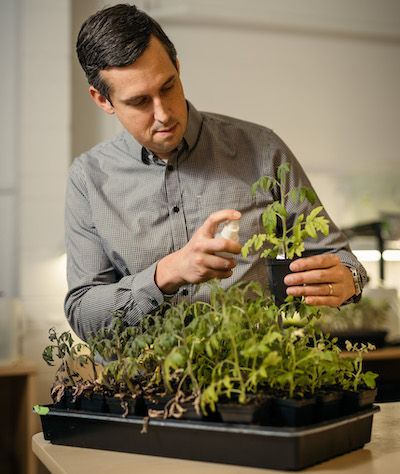
Self-healing plants: pioneering sustainable agriculture Learn more about self-healing plants
In a groundbreaking collaboration, McMaster Engineering and energy company Suncor have teamed up to revolutionize sustainable agriculture. Led by chemical engineering professor Todd Hoare, the partnership focuses on developing a soft chemical spray that empowers plants to fight off infections and pathogens on their own. This innovative solution uses photosensitizers, typically found in cancer treatments, to enhance plants’ ability to photosynthesize and combat bacteria. The environmentally friendly spray aims to reduce the use of traditional, harsh chemical sprays that harm ecosystems and pose health risks.
McMaster Engineering’s nanomaterial expertise has been instrumental in ensuring the spray’s active components effectively reach target areas within plants. The partnership, initiated in 2017, has led to the development of new facilities, including a hydroponics facility and a bacterial cell lab. This collaboration not only advances innovation in sustainable agriculture but also provides valuable research and training opportunities for undergraduate students.
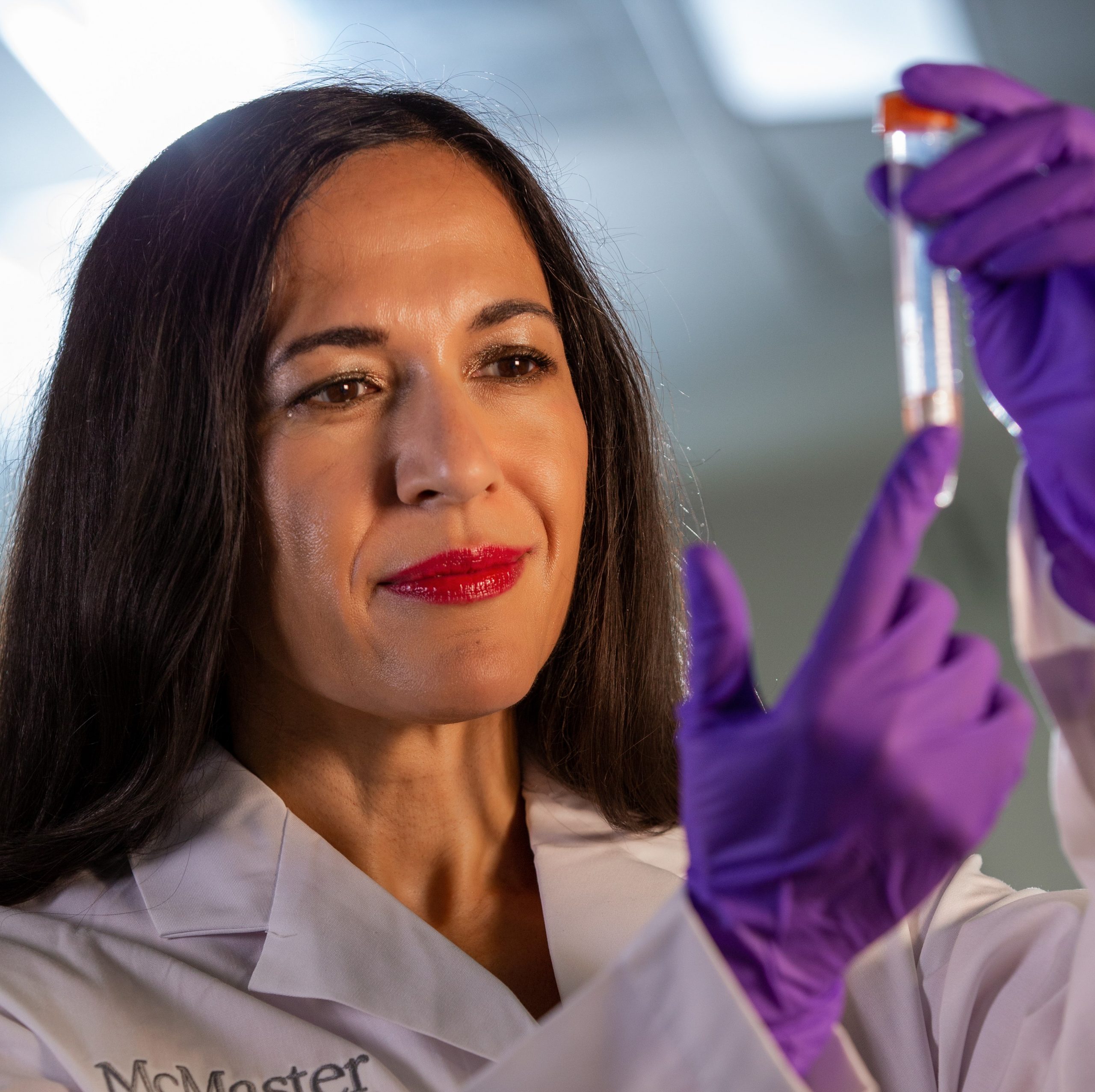
Partnership for novel brain cancer therapeutic Learn more about the adMare-McMaster partnership
In 2021, McMaster and adMare BioInnovations started working together with the goal of advancing research and technology commercialization in the life sciences sector. The first collaboration is aimed at developing a targeted therapy to prevent metastases in brain cancer patients. This three-year project is led by neurosurgeon Sheila Singh and biochemist Jakob Magolan at McMaster. adMare is contributing not only critical funding, but also pharma expertise and access to drug discovery infrastructure to help guide development of pre-clinical data and pivotal experiments, with the collective goal of founding a spin-off company to bring this novel brain cancer therapeutic to clinic. The partnership is expected to be the first of many successful collaborations, and MILO is actively engaged with adMare to identify further opportunities.
Licensing & Startups
MILO is dedicated to managing and commercializing the intellectual property portfolio of the University and its affiliated hospitals.
In the past year, MILO has successfully executed over 400 licenses, which have generated more than $6 million in royalty and/or licensing revenue. The team at MILO has worked closely with researchers and industry partners to license a wide range of patented technologies and copyrighted works, as well as advance various joint development projects. We have also been instrumental in creating spin-off companies and connecting researchers with industry partners, angel and venture capital investors and legal, financial, and business experts.
Licensing biomedical research tools to advance global health
McMaster University is a leader in the creation and commercialization of innovative research tools, such as animal models and cell lines, that have played an instrumental role in biomedical research. With MILO’s support, these pivotal tools have been licensed to academia and industrial labs to advance health research worldwide.
Former McMaster professor, William J. Muller, revolutionized breast cancer research with his work on genetically engineered mouse models (GEMMs). These models are indispensable to the study of breast cancer not only at the molecular and cellular levels, but also on the whole organism. Today, Jackson Laboratory – an independent, non-profit biomedical research organization – breeds, uses, distributes, and sells Muller’s mice for academic research on behalf of McMaster. Commercial research licensing is facilitated by MILO.
Cell lines are used around the world to advance gene therapy and vaccine discovery. McMaster professor emeritus Frank Graham developed the HEK 293 cell line in the 1970s, which is now widely used for academic research and within the pharmaceutical and biotechnology industries. The cell line has undergone significant modifications in laboratories across the globe and played a major role in the production of COVID-19 vaccine candidates. With the manufacturing capabilities of the Fitzhenry Lab, and in partnership with AdVec Inc., McMaster is an official distributor of GMP grade suspension and serum-free adapted HEK 293 cells for use in vaccine manufacturing and clinical testing.
With MILO’s support, McMaster has generated over $1.3M from the licensing of Muller’s GEMMs and Graham’s HEK 293 cells. More importantly, multitudes of university, hospital, biotech and pharmaceutical labs have had access to these innovative tools that were first discovered at McMaster, leading to major advancements in human and animal health.
Commercialization
Information Box Group
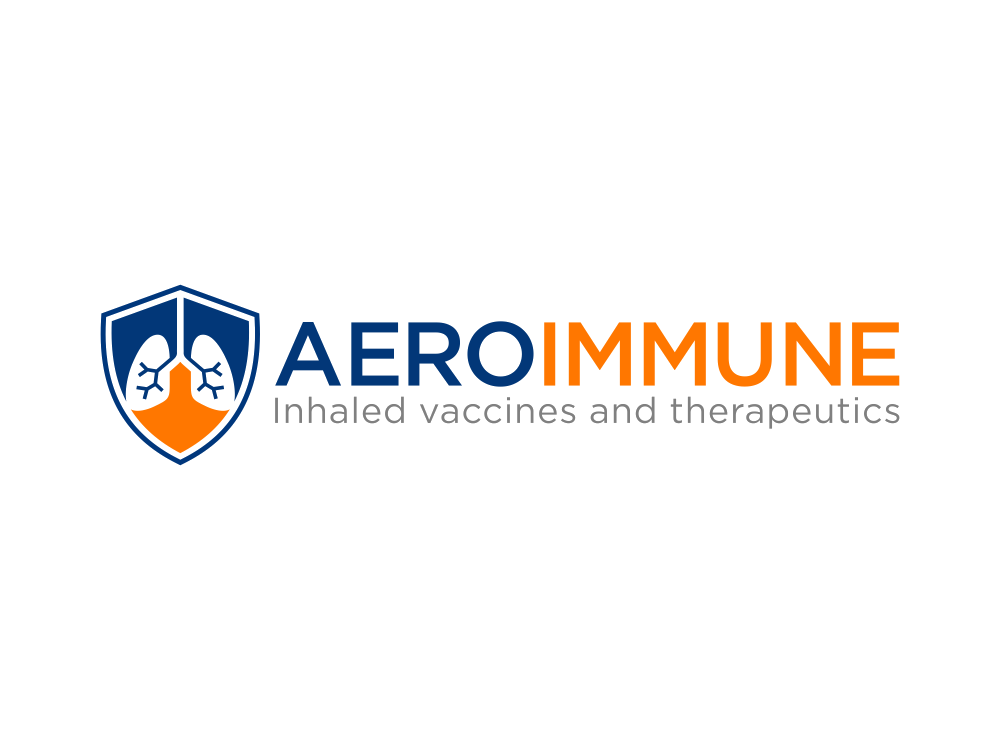
AeroImmune & McMaster advance inhaled COVID-19 vaccine research Learn more about AeroImmune
AeroImmune Technologies is advancing to Phase 2 human trials for a next-generation, aerosol-borne COVID-19 vaccine, thanks to over $8 million in funding from the Canadian Institutes for Health Research (CIHR). The Canadian-developed inhaled vaccine, led by experts in infectious disease and immunology, has shown promise in pre-clinical trials, demonstrating higher efficacy in inducing protective immune responses compared to traditional injections. By targeting the lungs and upper airways where viruses first enter the body, the vaccine provides long-lasting protection against respiratory infections, including Omicron and other SARS-CoV-2 variants.
Spearheaded by researchers Fiona Smaill, Matthew Miller, Zhou Xing, and Brian Lichty and developed as part of the Global Nexus School for Pandemic Prevention & Response, the inhaled vaccine aims to circumvent the need for constant updates by targeting mutation-resistant parts of the virus. Researchers believe that a no-needle, pain-free vaccine will be more appealing and convenient, while positioning Canada at the forefront of pandemic preparedness and advancing inhaled vaccine research for other infections.

Adapsyn’s latest partnerships in novel drug discovery Visit Adapsyn
Hamilton-based chemical bioinformatics company, Adapsyn Bioscience, discovers novel molecules for applications in therapeutics, agriculture, food, and nutrition. The company was founded in 2016 by Canada Research Chair in Natural Products and Chemical Biology, Nathan Magarvey.
Utilizing genomics, metabolomics, and assay biology, Adapsyn’s platform consistently identifies, isolates, and characterizes drug-like small molecules produced by microbes. The platform is currently being used to find novel therapies in oncology, inflammation, and infectious disease. In October 2022, Adapsyn received funding from the Bill & Melinda Gates Foundation to discover novel therapeutics that target tuberculosis (TB). The company will leverage artificial intelligence and machine learning to identify novel small molecules that inhibit the development of TB and collaborate with leaders in TB research on target selection, bioactivity testing and target confirmation.
Additionally, Adapsyn entered into a strategic collaboration with Evotec SE in September 2022. As part of the collaboration, Evotec will evaluate small molecules developed by Adapsyn as potential therapeutic candidates in proprietary and partnered drug discovery projects and Adapsyn will generate libraries of bioactive small molecules for Evotec to screen against high-value targets.
Adapsyn’s success in leveraging their platform to advance novel drug candidates and foster collaborations with various industries is driving innovation and improving health and well-being worldwide.
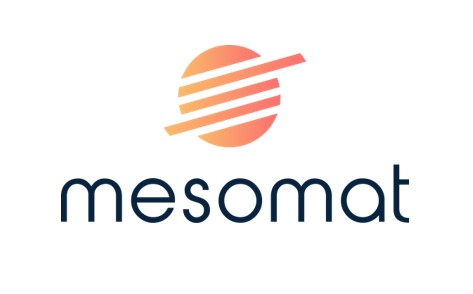
MesoMat’s sensing platform is helping industry produce smarter and safer tires Vist MesoMat
Smart tires are critical to autonomous and electrical evolution, and there is a growing need for manufacturers to have ready-access to real-time data to see patterns, predict behaviour and optimize product performance. Enter Hamilton-based MesoMat, whose sensor technology is providing tire manufacturers just that.
Established in 2018 by McMaster scientists Kari Dalnoki-Veress and Paul Fowler, the company is targeting both the personal and commercial vehicle markets. MesoMat’s technology – born out of Dalnoki-Veress’ research in ‘squishy physics’ that saw some materials exhibit sensor properties when bent, twisted and stretched – enables tire manufacturers to analyze and optimize their products, reduce costs and advance next-generation smart vehicle research and development.
In 2022, MesoMat raised US$1.25M in a financing round led by Ridgeline Partners, a deep tech VC. MesoMat is releasing the first version of its tire sensing platform, which provides measurements of tire deformation, temperature, and pressure for higher- performing, safer, and smarter tires in Q1 of 2023.
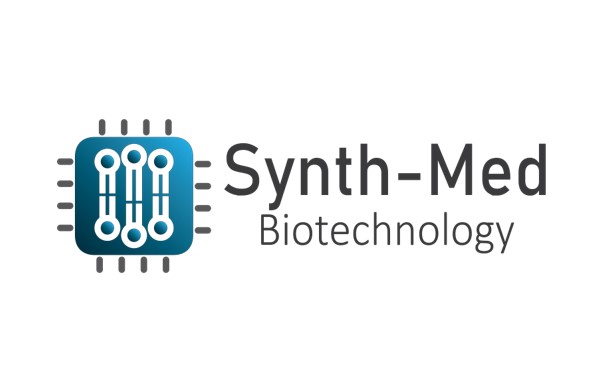
Revolutionizing vaccine delivery with smart blood cells Visit Synth-Med
Synth-Med, a biotechnology company at McMaster University, has developed a ground-breaking vaccine delivery method using re-engineered red blood cells. Researchers Isabella Passos-Gastaldo, Sebastian Himbert, Maikel Rheinstadter and their interdisciplinary team have created a novel approach to vaccination by embedding SARS-CoV-2 spike proteins into red blood cell membranes, forming harmless virus-like particles. This method activates the immune system, producing antibodies without causing drastic immune reactions or short-lived responses.
Synth-Med’s smart blood cell platform offers a promising new vehicle for vaccine delivery, opening up new possibilities for vaccines and therapeutics. The technology can be adapted to develop vaccines for new viruses or variants, showcasing its potential in pandemic response, prevention, and preparedness. Thanks to the success of their research, Synth-Med joined Horizons Ventures’ portfolio – a venture capital firm investing in technology startups.
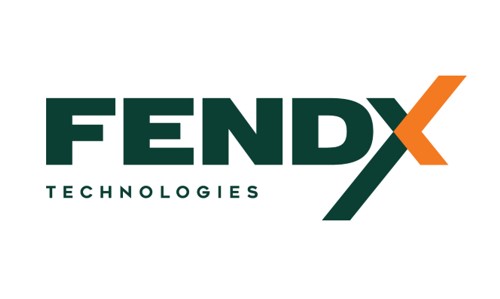
Preventing the spread of pathogens with FendX technology Visit FendX Technologies
FendX Technologies Inc., established in 2020 by McMaster engineers Leyla Soleymani and Tohid Didar, has made significant progress in the development and scale-up of its REPELWRAP™ film – a protective surface coating that prevents adhesion of pathogens and reduces their transmission. The company successfully completed lab prototype testing with McMaster University and signed a development stage agreement with Dunmore International Corp. to create intermediate-sized prototype films for testing. This collaboration marks an important milestone for FendX, as it’s the first step towards an automated manufacturing process for REPELWRAP™ film.
FendX celebrated another milestone in March 2023, when it announced the listing of its common shares on the Canadian Securities Exchange (CSE) under the symbol “FNDX”.
In addition to the REPELWRAP™ partnership, FendX has signed an exclusive international licensing agreement with McMaster University for a development-stage nano-spray coating. This spray has proven to be effective at repelling pathogen adhesion and also possesses pathogen killing properties.
FendX President and CEO Carolyn Myers says the license agreement with McMaster is an important addition to their current nanotechnology. “There is great potential with a spray product as it could be easier to apply to many surfaces and help expand our potential market opportunities beyond industrial and commercial applications,” says Myers.
By partnering with McMaster, FendX will support McMaster’s continued research and development of spray nanotechnology with the goal of producing novel ways to protect people from the spread of pathogens.

Enhancing medical education with connected outcomes management Visit Acuity Insights
Acuity Insights, formerly Altus Assessments, offers a unique end-to-end platform for higher education by specializing in Connected Outcomes Management. Their innovative tool, Casper, was developed at McMaster University’s Faculty of Health Sciences to improve the medical school admission process by evaluating applicants’ social intelligence and professionalism skills. Casper is now used by over 530 programs worldwide, contributing to the selection of well-rounded medical professionals.
By acquiring One45, a MedEd software company, Acuity Insights expanded its offerings to provide medical schools with operational tools and end-to-end data analytics required for better program management. In 2022, Altus Assessments and One45 rebranded under the new company name, Acuity Insights. This new name better represents the combination of their exceptional team and robust platform of tools.
The company’s vision is to provide a comprehensive platform that connects data from admissions to graduation, helping higher education programs identify and select applicants, nurture learners, and uncover insights for informed decision-making.
MILO Metrics – Fiscal Year 2023
Commercialization Revenue ($) – royalties, licensing fees, equity

Invention Disclosures
Fostering a culture of innovation and commercialization across the university and affiliated hospitals is a key mandate for MILO to maximize the impact and benefit of our research to society. Whether it is providing educational workshops and resources to learn more about intellectual property and commercialization, or celebrating the successes of licenses, startups and all other forms of technology transfer, MILO is eager to engage with a wide range of the research community, especially new faculty, post-doctoral fellows, and graduate students.
In recent years, MILO has seen an increase in the number of disclosures from interdisciplinary groups, with strong growth in copyright disclosures relating to software and digital technologies, as well as a growing interest in startup company formation across all Faculties.
Disclosure Contributions by Faculty
| Engineering | 46 Disclosures |
| Health Sciences | 37 Disclosures |
| Science | 7 Disclosures |
| Other Faculties / Hospitals | 15 Disclosures |
Breakdown of Inventors

DO NOT REMOVE EITHER TABLE. This text will not render on the client side.
McMaster University continues to be a tech transfer leader among Canadian academic and non-profit research institutions. As reported in the annual AUTM Canadian Licensing Survey, McMaster consistently receives top ranking in the highest number of new licenses executed per year. This outstanding performance is driven by the licensing of a diverse range of quality-of-life questionnaires, teaching tools, and measurement instruments for non-exclusive use by companies, government agencies, healthcare providers, and educational institutions.
To ensure successful IP protection and commercialization of the technologies and research generated by McMaster faculty, MILO’s Business Development team conducts thorough examination of invention disclosures to assess their patentability. This includes:
- Conducting prior art searches (patents, copyright, trademark, etc.) and developing IP strategies
- Assessing freedom to operate and invention patentability
- Analyzing market and industry trends (market size, market potential, competitors, etc.)
- Evaluating potential risks (time needed to market, money and infrastructure needed for development, etc.)
Based on this analysis, MILO then determines the most viable commercialization pathway for the technology, whether through licensing or startup creation. Once protected (e.g. patent or copyright), MILO assists researchers in identifying potential companies and partners that may be interested in the technology. In the case of startup formation, MILO provides support by connecting the team with relevant mentors with expertise in their fields.
Technology Spotlight
Information Box Group

Network segmentation and architecture Read the tech brief on network segmentation and architecture
Researchers at McMaster University have developed an algorithm that creates secure networks with zero vulnerabilities. Using the Zero Trust model, the algorithm configures network topology and segmentation policies that deny all access outside the stated policy, minimizing openings. Their patent-pending segmentation method optimizes Defense-in-Depth, providing the most secure and mathematically provable segmentation plan for IT security networks.
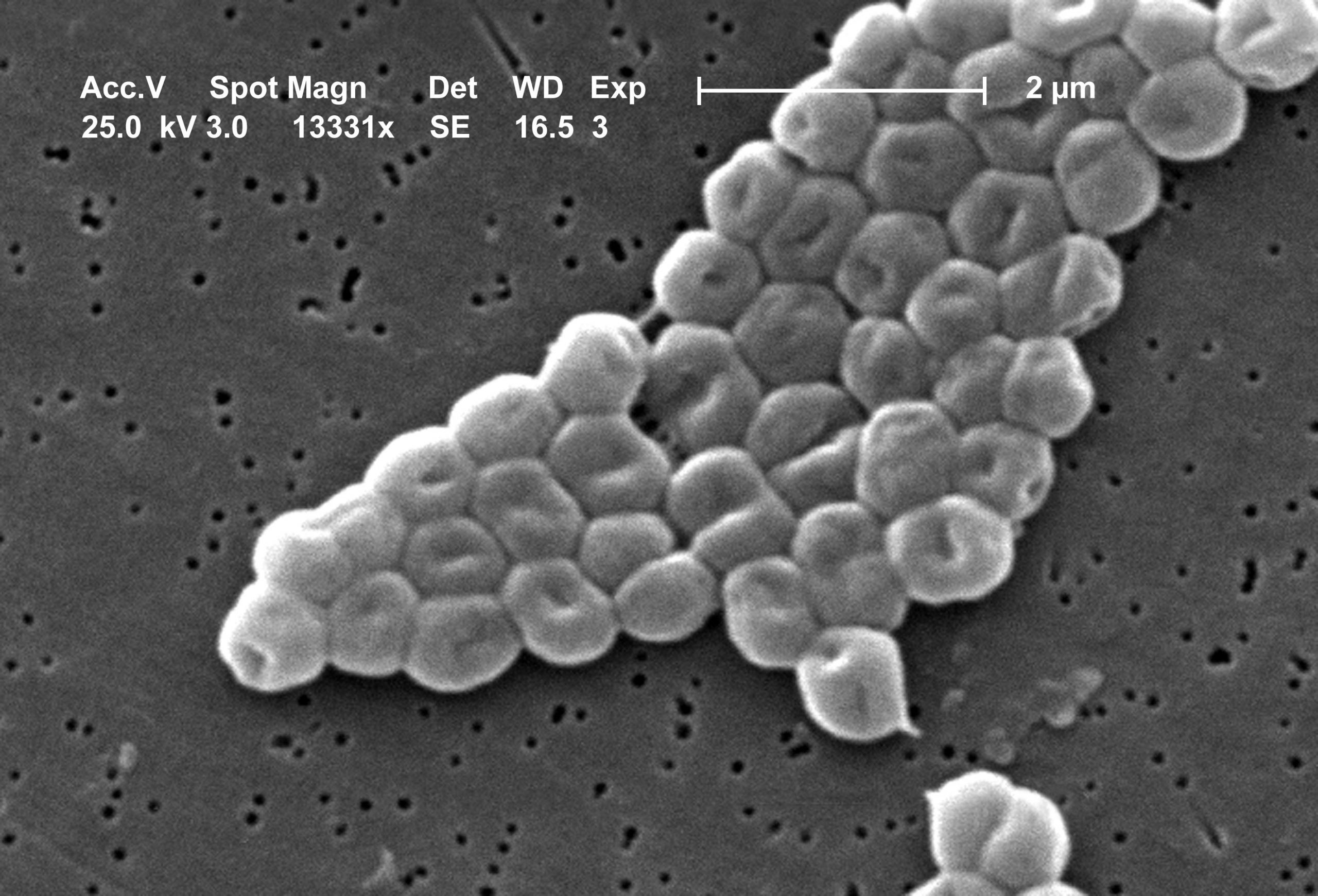
Deep learning-guided discovery of a narrow-spectrum antibiotic against Acinetobacter baumannii Read the tech brief on the use of AI to discover antibiotics
McMaster researcher Jon Stokes, in collaboration with colleagues at MIT, has pioneered the use of artificial intelligence to discover antibiotics. The team has discovered a powerful antibiotic that kills some of the most dangerous drug-resistant bacteria in the world. The drug is the first of its kind to be found using AI methods trained with libraries of pharmaceutical compounds. While traditional antibiotic discovery methods are time-consuming, costly, and limited in scope, Stokes’ modern algorithmic approach significantly reduces the time and cost needed to search for new antibiotics. The work highlights the power of computer-aided drug discovery.
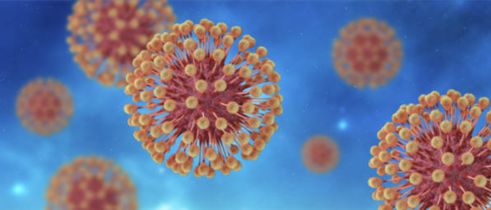
Discovery of a potent antiviral agent (against Herpes Simplex Virus, type 1) Read the tech brief on the discovery of a potent antiviral agent
A groundbreaking discovery has been made in the search for better treatments for viruses like HSV and SARSCoV-2. McMaster researchers have found a powerful and selective antiviral agent that specifically targets herpes simplex virus type 1 (HSV-1) and SARSCoV-2. This molecule shows promising potential for treating various DNA and RNA viruses with minimal harm to host cells.

Gross Motor Function Measure (GMFM) Read the tech brief on the Gross Motor Function Measure (GMFM)
The Gross Motor Function Measure (GMFM) is a valuable clinical tool developed by Drs. Dianne Russell, Peter Rosenbaum, Marilyn Wright, and Lisa Avery. It assesses gross motor function in children with cerebral palsy, using a 4-point scoring system. The GMFM has two versions – both aid in realistic goal setting for improved motor skills, and are used widely by pediatric therapists in practice, as well as by academia and biotech for academic studies and clinical trials.

Photoelectrochemical (PEC) technology bundle View the list of technologies in the photoelectrochemical (PEC) bundle
The research lab of Leyla Soleymani specializes in miniaturized biomedical devices and has been developing a collection of integrative technologies, from electrode coating materials to portable detection systems, that enable ultrasensitive photoelectrochemical (PEC) biosensing capabilities.
Issued Patents
| 1 | SURFACE MODIFICATION OF CELLULOSE NANOCRYSTALS Inventor(s): Emily Cranston, Zhen Hu Patent Number: 2895292 Countries: Canada |
| 2 | ENERGY RECOVERY SYSTEM Inventor(s): James Cotton, Jeffery Girard, Rafat Hirmiz, Michael Cino, Edward Corbin Bruce, Yakoob Hana, Hossam Sadek Patent Number: 2896217 Countries: Canada |
| 3 | ALUMINIUM ALLOYS FOR STRUCTURAL AND NON-STRUCTURAL NEAR NET CASTING, AND METHODS FOR PRODUCING SAME Inventor(s): Sumanth Shankar, Xiaochun Zeng Patent Number: 11634795 Countries: United States |
| 4 | ADOPTIVE CELL TRANSFER AND ONCOLYTIC VIRUS COMBINATION THERAPY Inventor(s): Lan Chen, Boris Simovic, Omar Salem, Scott Walsh, Yonghong Wan Patent Number: 3474888 Countries: Europe (validated in UK, Ireland, France, Germany, Netherlands) |
| 5 | BIOLOGICAL MEMBRANE-BASED SENSOR Inventor(s): Richard Alsop, Sebastian Himbert, Jose Moran-Mirabal, Maikel Rheinstadter, Sokunthearath Saem Patent Number: 11577248 Countries: United States |
| 6 | BICARBONATE AS A POTENTIATOR FOR ANTIMICROBIAL AGENTS Inventor(s): Eric Brown, Maya Farha, Craig MacNair, Jonathan Stokes Patent Number: 7159174 Countries: Japan |
| 7 | METHODS FOR INHIBITING MICROBE GROWTH Inventor(s): Eric Brown, Maya Farha, Craig MacNair, Jonathan Stokes Patent Number: 11400106 Countries: United States |
| 8 | LABELED FLUOROCARBON AGENTS FOR POSITRON EMISSION TOMOGRAPHY IMAGING Inventor(s): John Valliant Patent Number: 11491244 Countries: United States |
| 9 | THIOL-ENE POLYMERS AND CROSSLINKED HYDROGEL NETWORKS Inventor(s): Michael Coulson, Sarah Alison Stewart, Harald Stover Patent Number: 7208169 Countries: Japan |
| 10 | SURFACE TREATMENT FOR TOOL WEAR AND CHIPPING IMPROVEMENTS Inventor(s): Maryam Aramesh Patent Number: 11389879 Countries: United States |
| 11 | CARBONIC ANHYDRASE-CATALYZED ISOTOPE EQUILIBRIUM BETWEEN CO2-H2O FOR OXYGEN ISOTOPE ANALYSES OF AQUEOUS SAMPLES Inventor(s): Sang-Tae Kim, Martin Knyf, Nicolas Randazzo Patent Number: 11543398 Countries: United States |
| 12 | DNAZYME-BASED SENSOR FOR HELICOBACTER PYLORI Inventor(s): Monsur Ali, John Brennan, Carlos Filipe, Yingfu Li, Michael Wolfe Patent Number: 11549945 Countries: United States |
| 13 | PROCESSES FOR THE PREPARATION OF ORTHO-ALLYLATED HYDROXY ARYL COMPOUNDS Inventor(s): Nicholas Jentsch, Jakob Magolan, Mathew Piotrowski, Xiong Zhang Patent Number: 11512034 Countries: United States |

